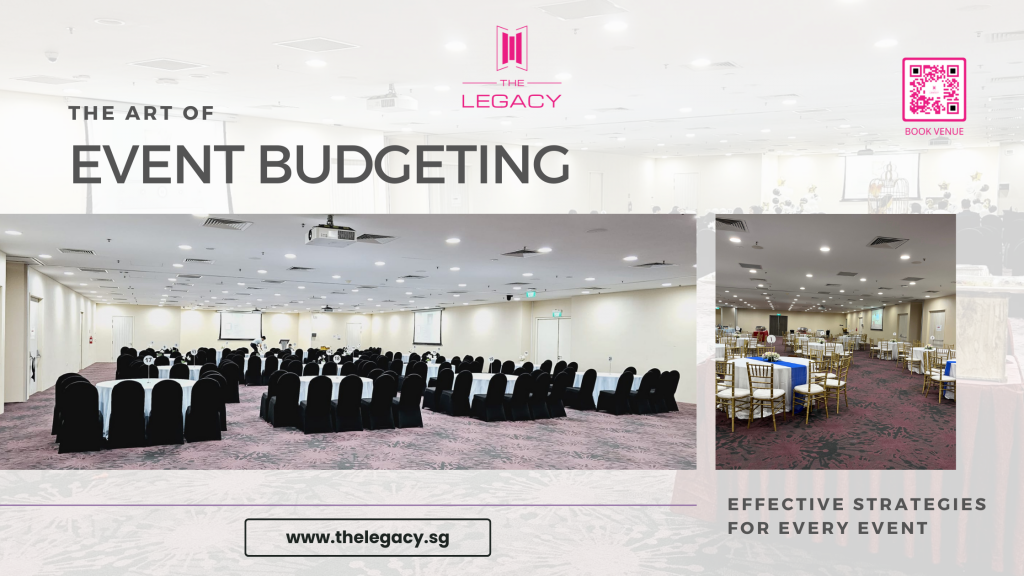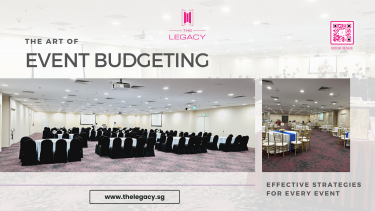Event planning is an exciting and amazing task that requires extreme attention to detail, creativity, and smart budgeting. Regardless of the type or size of the event, budgeting is essential to its success. In this article, we will look at the art of event budgeting and give you practical techniques for planning and executing exceptional events in Singapore on a budget.
Define Your Event Objectives:
Before diving into the budgeting process, you must define your event objectives. What is the event’s purpose? Are you planning a corporate event, a baby shower, a wedding or a social gathering? Understanding your aims and objectives will assist you in allocating funds and prioritising essential expenses.
Establish a Realistic Budget:
A realistic budget is essential for event planning success. Consider the size, duration, and projected attendees of your event. Research industry standards and obtain estimates from vendors to get an idea of the prices involved. Having a buffer in your budget is essential to adjust for any unforeseen costs.
Categorise Your expenses:
Sort your spending into categories to clearly understand how your funds will be spent. Venue hire, catering, decor, audiovisual equipment, promotion, transportation, and entertainment are all common categories. A percentage of your budget should be allocated to each category depending on its value to the overall event experience.
Prioritise Your Expenses:
Not all event components are equal. Prioritise the elements that will have the most impact on the attendance experience. For example, investing in skilled speakers and informative content may take precedence over lavish décor if you’re planning a conference or corporate event. Spend wisely to provide the most value to your attendees.
Partner with sponsors
Collaboration with sponsors can lead to a successful, cost-effective event. You can boost your chances of success and deliver an event that meets your objectives and exceeds your expectations by leveraging their resources and expertise. Sponsors may have marketing materials, advertising opportunities, and networks. Use these to promote your event and reach a larger audience. Finding devoted sponsors lowers your costs while increasing the return on investment for your event.
Embrace innovation:
Budget limits should not hinder your innovation but rather stimulate inventive solutions. Investigate low-cost decor choices, including DIY projects or utilising existing venue features. Consider collaborating with local artists or entertainers willing to give competitive pricing or work together in exchange for publicity. Embracing innovation will help you offer a one-of-a-kind event experience while staying within your budget.
Monitor and Adjust as Needed:
Maintain a careful eye on your budget and carefully track spending throughout the event preparation process. To stay on track, consider your spending regularly and adjust as needed. Prepare to make difficult decisions if unexpected expenses occur. A backup plan will allow you to preserve financial stability without compromising the event’s quality.
Conclusion:
Event budgeting is a skill that event planners in Singapore must acquire to conduct effective events. You may assure an outstanding event experience while staying within your financial constraints by identifying objectives, creating realistic budgets, categorizing expenses, prioritizing spending, researching and negotiating with suppliers, embracing innovation, and tracking expenses. Remember that proper budgeting allows you to focus on creating lasting memories and extraordinary events that leave an impression. Proper event budgeting can help you to find a suitable event venue in Singapore.

